23 wild "secrets" of old Hollywood movies that are shocking today
Categories: Cinema | History | World
By Pictolic https://pictolic.com/article/23-wild-secrets-of-old-hollywood-movies-that-are-shocking-today.htmlBuzzFeed community members told about the coolest and strangest facts they know about Old Hollywood. And that's what the picture turned out to be.
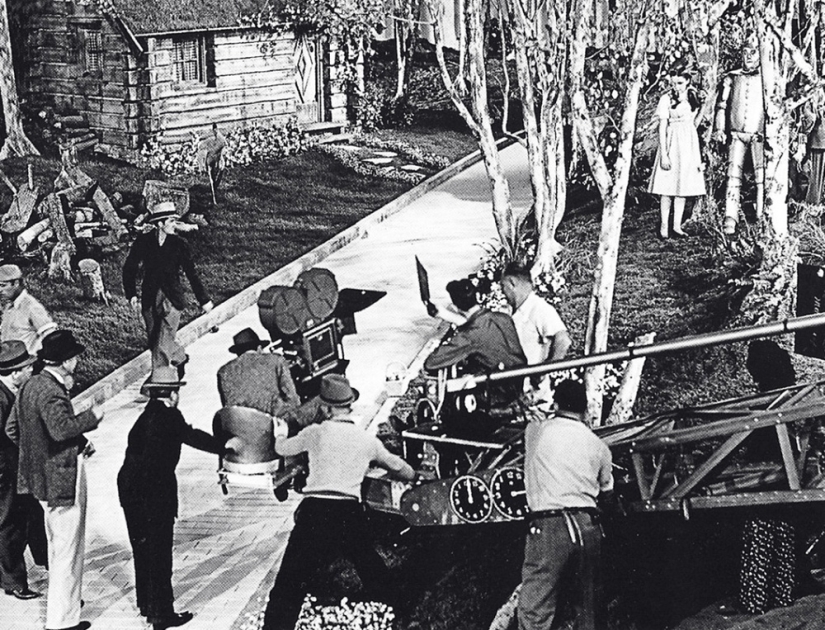
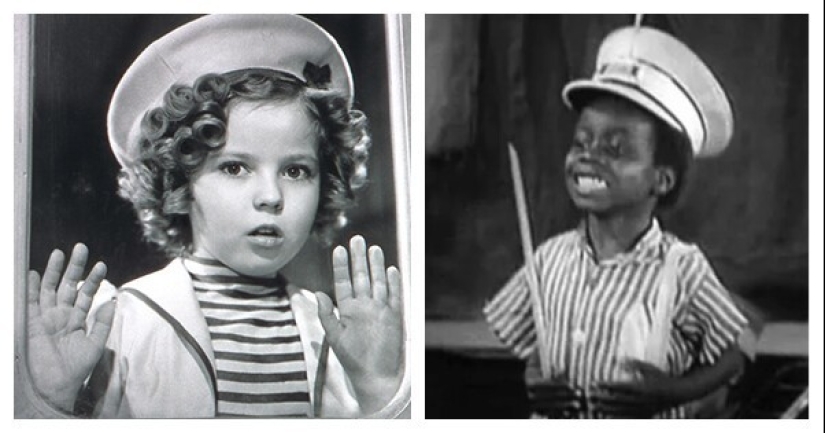
When child actors behaved badly on the set, they were sometimes sent to a special "black box" and forced to sit on an ice block as punishment. It was definitely cruel and very unusual. Shirley Temple recalled later:
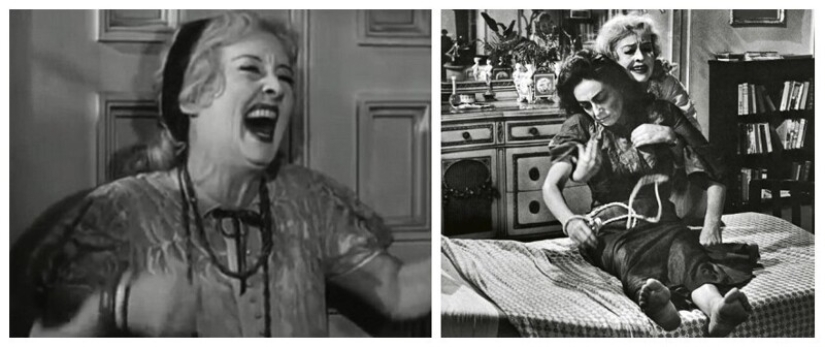
During the shooting of a scene from the movie "What happened to Baby Jane?" Bette Davis hit Joan Crawford so hard that she needed stitches. Crawford cunningly retaliated: she put some weights in her pockets so that Davis, who had to drag Crawford's almost lifeless body according to the plot, had to strain her back a lot.
The enmity of these two actresses was disgusting. Joan Crawford even campaigned against Bette Davis so that she would not receive an Oscar for the film. If Davis had won, she would have become the first actress to win three Academy Awards.
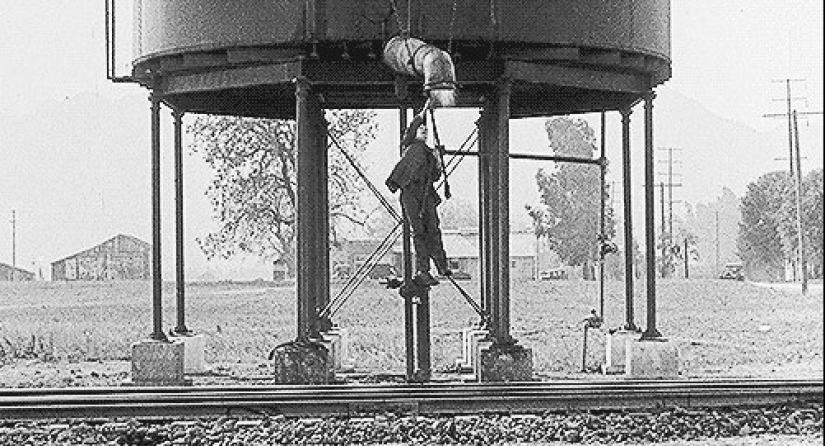
Buster Keaton injured his neck performing a trick in the movie "Sherlock Jr.", but realized it only after many years. This happened during the filming of a scene when a stream of water pours out on him from a water tower. The water pressure was so great that the actor damaged the cervical vertebrae.
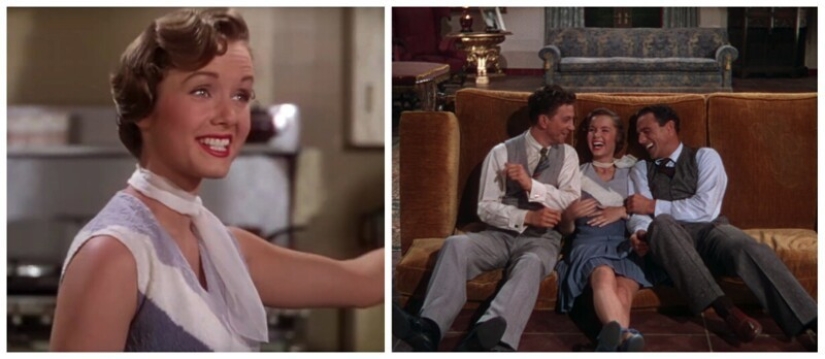
Gene Kelly on the set of "Singing in the Rain" so mocked the way Debbie Reynolds dances that one day she hid from everyone under the piano to cry.
The actress had only a few months to learn what Gene Kelly has been doing all his life. But he still came to rehearsals and criticized everything she did-even though she tried very hard and gave her all. One day she huddled to cry under the piano in the studio, and Fred Astaire found her there. He started working with her on dance numbers and helped a lot.
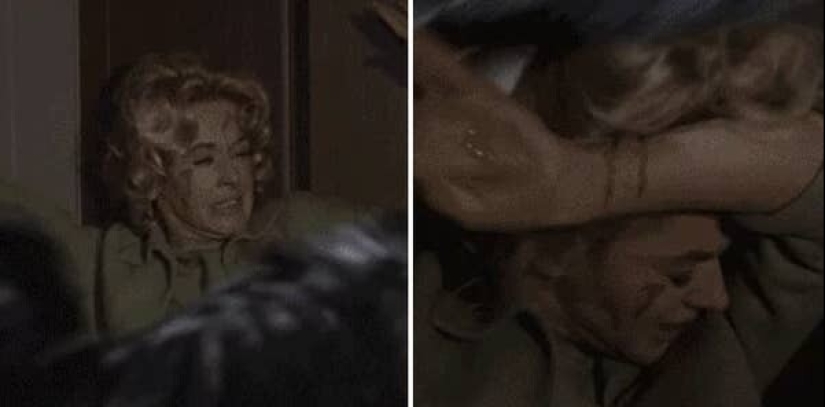
During the filming of the famous scene in the attic in the film "Birds" by Alfred Hitchcock, several live birds were tied to the actress, and birds were literally thrown at her. At first, Tippi Hedren was told that the birds would be artificial, but there were some technical difficulties with this, so the birds were replaced with real ones. After seeing this scene being filmed, Cary Grant told Hedren:
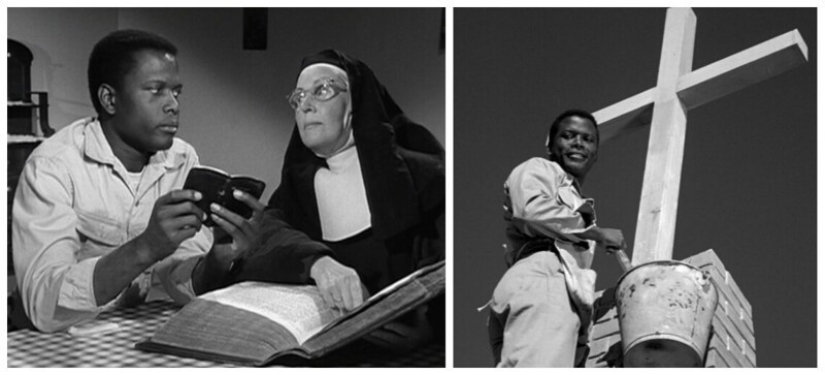
Ralph Nelson's film "Lilies of the Field" was shot in just 14 days, and actor Sidney Poitier, who played the main role, refused his fee so that this film could be made. For the sake of filming, the producer and director of the film Ralph Nelson mortgaged his house, and Sidney Poitier agreed to shoot for free (but in exchange for a percentage of the box office). As a result, Poitier received an Oscar for Best Actor.
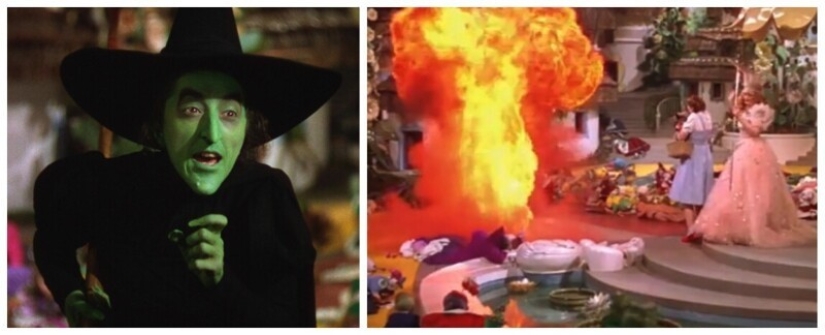
During the filming of The Wizard of Oz, Margaret Hamilton (The Wicked Witch of the West), received second-degree burns on her face and third-degree burns on her hand due to a malfunction in the trick. During the filming of the scene, the hatch didn't open fast enough. The actress had to be treated in the hospital and at home for six weeks. Before returning to the set, she said:
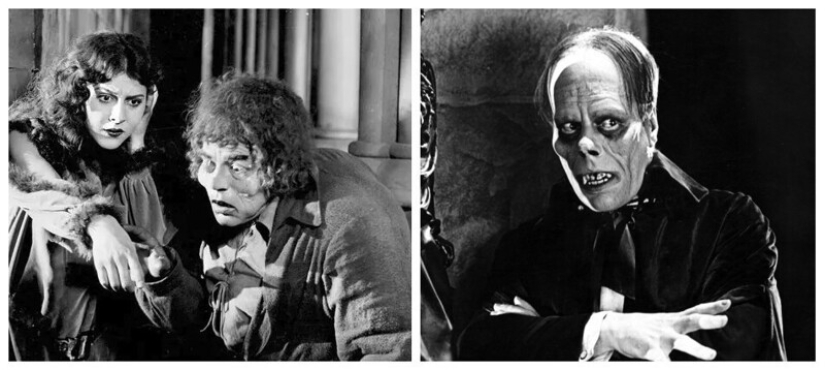
Lon Chaney, who played the main characters in the films "The Hunchback of Notre Dame" and "The Phantom of the Opera", made up for his roles on his own. Cheney has appeared in more than 150 films, and has also been recognized as one of the best makeup artists in the business. He even wrote an article about makeup in the Encyclopedia Britannica in 1929.
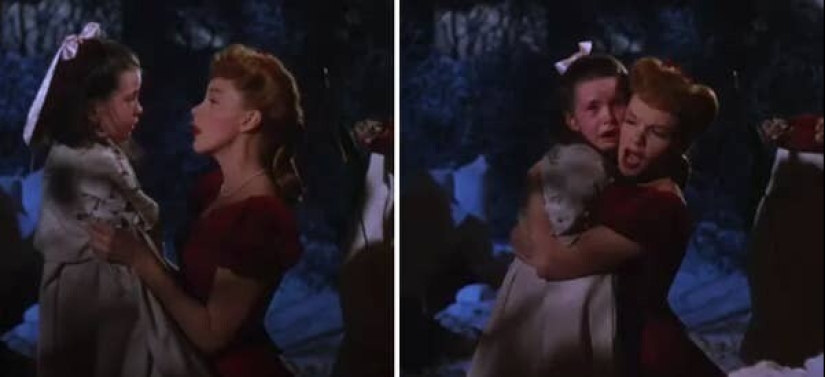
In the movie "Meet Me in St. Louis," the girl's mother, actress Margaret O'Brien, made her cry using a little trick. The film was directed by Vincent Minelli (Judy Garland's husband); in his memoirs, he wrote that he made Margaret cry by telling her that her dog had died. But neither the girl's mother nor Judy Garland, who played the main role in the film, liked such techniques. Therefore, Margaret's mother went to the trick: she approached her daughter and said:
And it always worked! After all, June Ellison was also a girl actress and Margaret's rival at the MGM film studio.
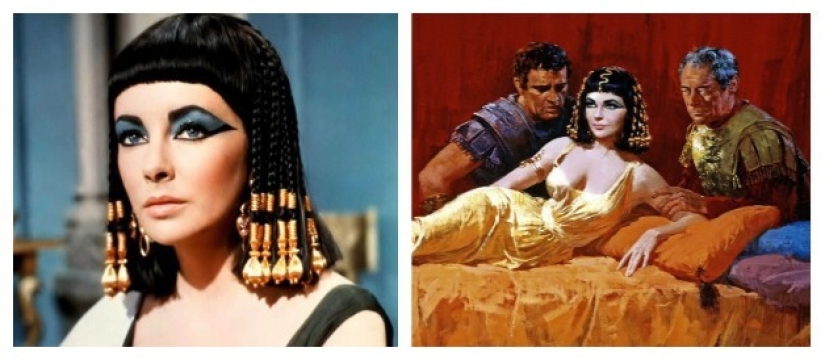
Cleopatra was one of the most expensive films in the history of cinema. The original budget of the film was $5 million, but after two years, the film was still not finished, and money continued to be invested in it. In terms of today's money, its budget was more than $ 370 million. The film almost bankrupted the 20th Century Fox studio.
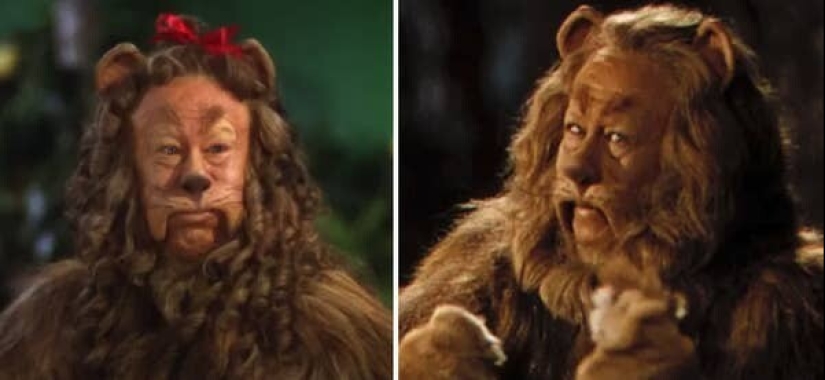
The Cowardly Lion costume from The Wizard of Oz was made from real lion fur
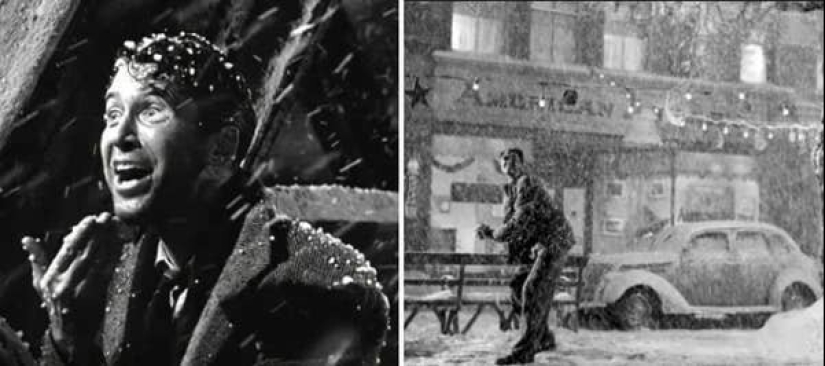
In the film "This Wonderful Life", screenwriter and director Frank Capra helped create a new type of artificial snow. In those years, corn flakes painted white were often used as snow for filming. But this method did not suit Capra: it was too noisy when the actors had to walk in the "snow".
The new technique greatly simplified the shooting — now there was no need to shoot the image and sound separately. It also earned Russell Shearman and his team a special award for technical achievements at the Oscar ceremony.
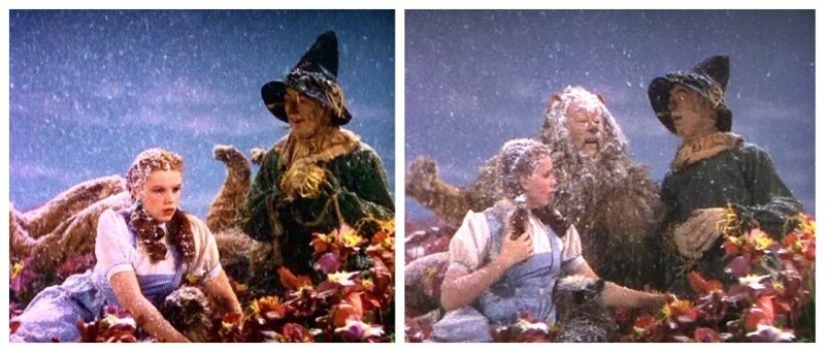
In The Wizard of Oz, the sudden "blizzard" was also not made of real snow or even cornflakes. It was asbestos and, obviously, then it was a fairly common practice on the set of films.
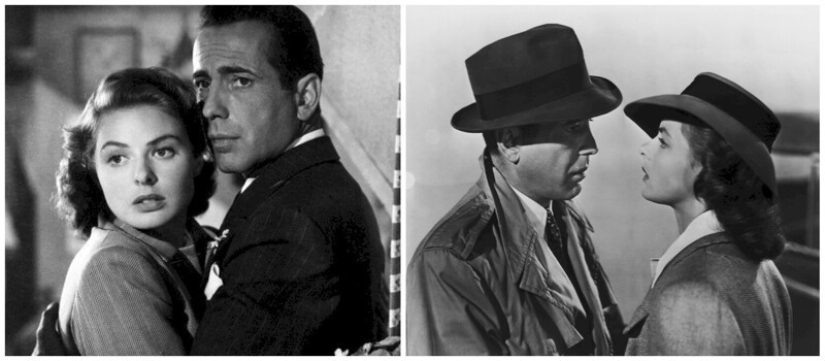
Humphrey Bogart was a couple of centimeters shorter than Ingrid Bergman, so in Casablanca he had to stand on boxes and sit on pillows to appear taller
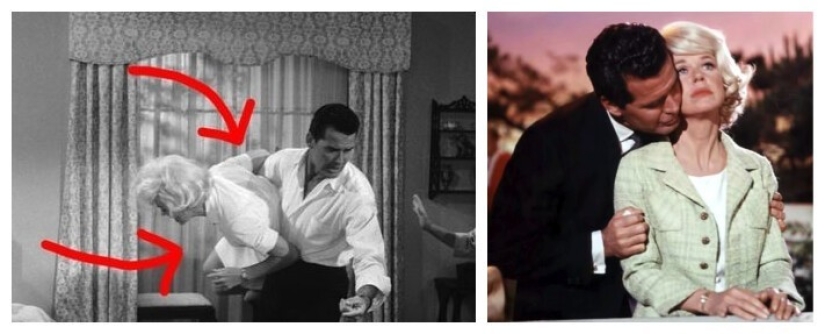
During the filming of the movie "Move over, Darling" James Garner, lifting Doris Day, accidentally broke two of her ribs. Doris Day told me later:
The two remained friends for many years.
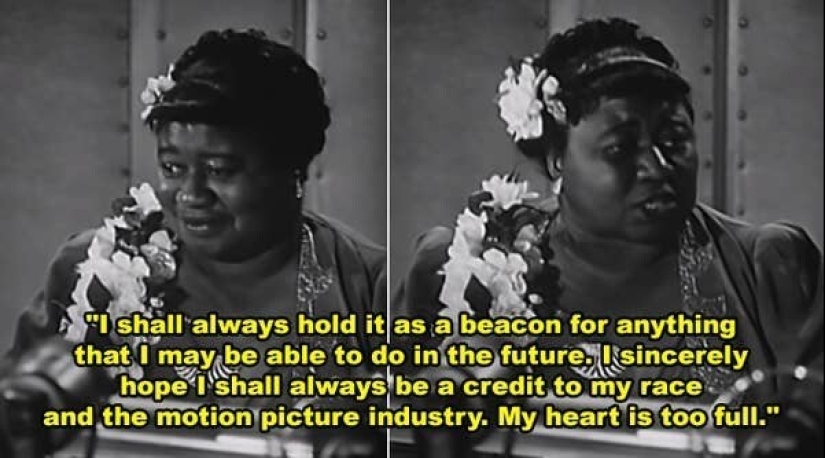
Hattie McDaniel became the first black person nominated for an Oscar. But blacks were not allowed into the hotel where the award ceremony took place. The producer of "Gone with the Wind" had to ask the hotel administration for a special service — to let the actress into the building. She won an Oscar that night.
The twelfth Academy Awards ceremony was held at the Ambassador Hotel in Los Angeles, which was not officially integrated until 1959. That year there were two separate "Gone with the Wind" tables at the ceremony: one in front for white actors, including Vivien Leigh and Clark Gable, and one at the very end for Hattie McDaniel and her entourage.
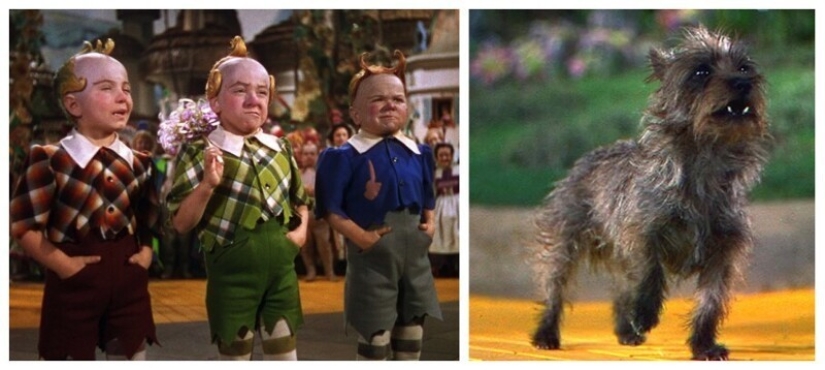
The actors who played Munchkins (Munchkins) in The Wizard of Oz were paid only $ 50 a week, and Toto's dog was paid $ 125 a week. Adjusted for inflation, Munchkins would earn just over $900 today, and Toto would earn about $2,300 a week.
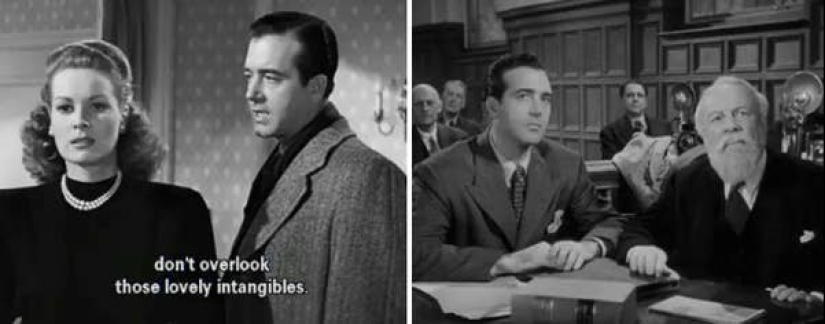
Actor John Payne, who played Fred Gailey in the movie "Miracle on 34th Street", loved the film so much that he wrote its sequel. Actress Maureen O'Hara told about this in her autobiography:
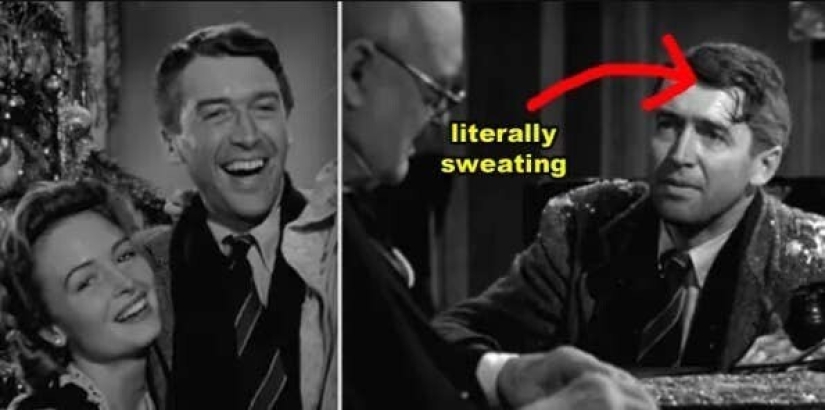
The film "This Wonderful Life", in which the case takes place in winter, was filmed in the summer. Sometimes it got so hot that we had to stop shooting for a few days.
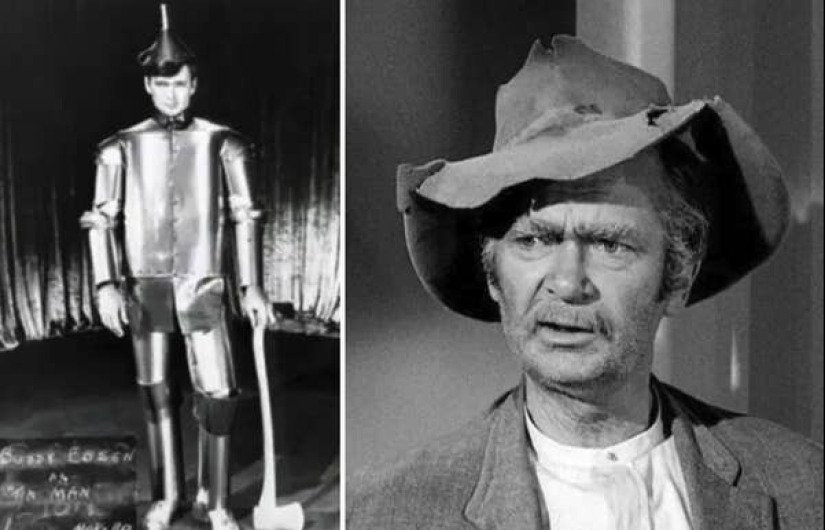
Initially, the Iron Man in The Wizard of Oz was Buddy Ebsen, but aluminum dust from makeup almost killed him, and he was replaced by another actor. It ended sadly: Ebsen was hospitalized and removed from filming, replacing him with Jack Haley. And, of course, they started using safer aluminum paste for makeup. Ebsen claimed that he had trouble breathing for the rest of his life because of "that damn movie."
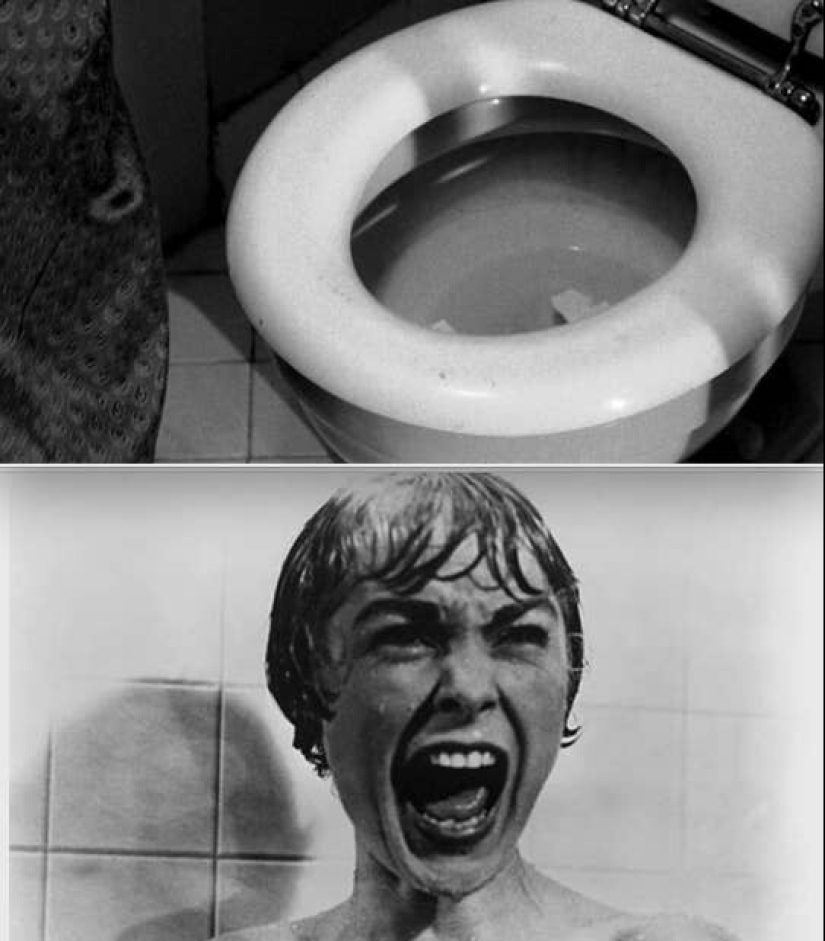
In the movie "Psycho", for the first time, the toilet bowl drain tank appeared on the screen. Hitchcock had to convince the censors for a long time. Alfred Hitchcock really had to fight for this scene to be seen. He claimed that everything was thought out to the smallest detail:
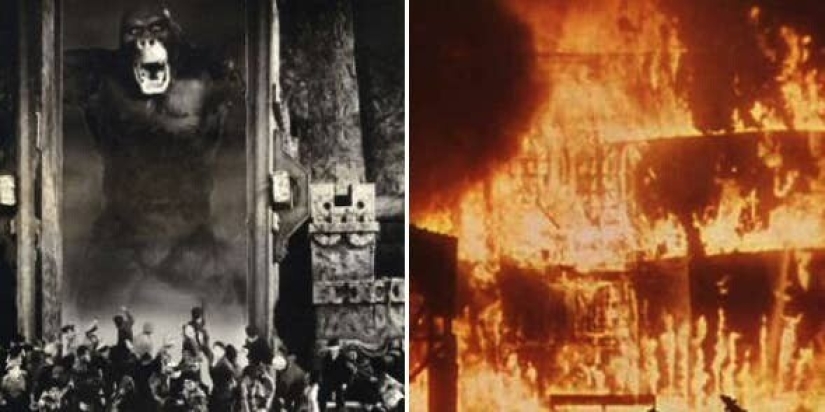
Some of the most famous sets of "King Kong" were destroyed in order to shoot the scene of the burning of Atlanta in "Gone with the Wind"
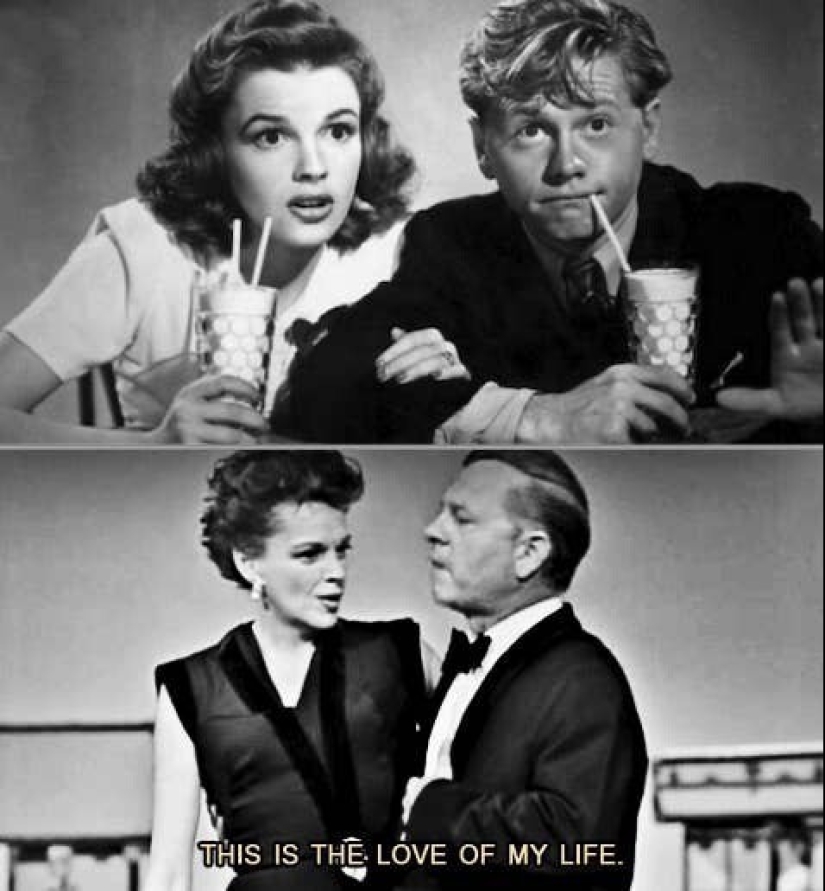
The studio forced young actors Mickey Rooney and Judy Garland to take stimulants + sleeping pills. According to Judy Garland's memoirs, it was a conveyor belt: they were given stimulants to work for 72 hours in a row, and then they turned off for several hours with sleeping pills. And then, four hours later, they were woken up again and given stimulants — it was time to act in new scenes.
Recent articles

It's high time to admit that this whole hipster idea has gone too far. The concept has become so popular that even restaurants have ...

There is a perception that people only use 10% of their brain potential. But the heroes of our review, apparently, found a way to ...

New Year's is a time to surprise and delight loved ones not only with gifts but also with a unique presentation of the holiday ...